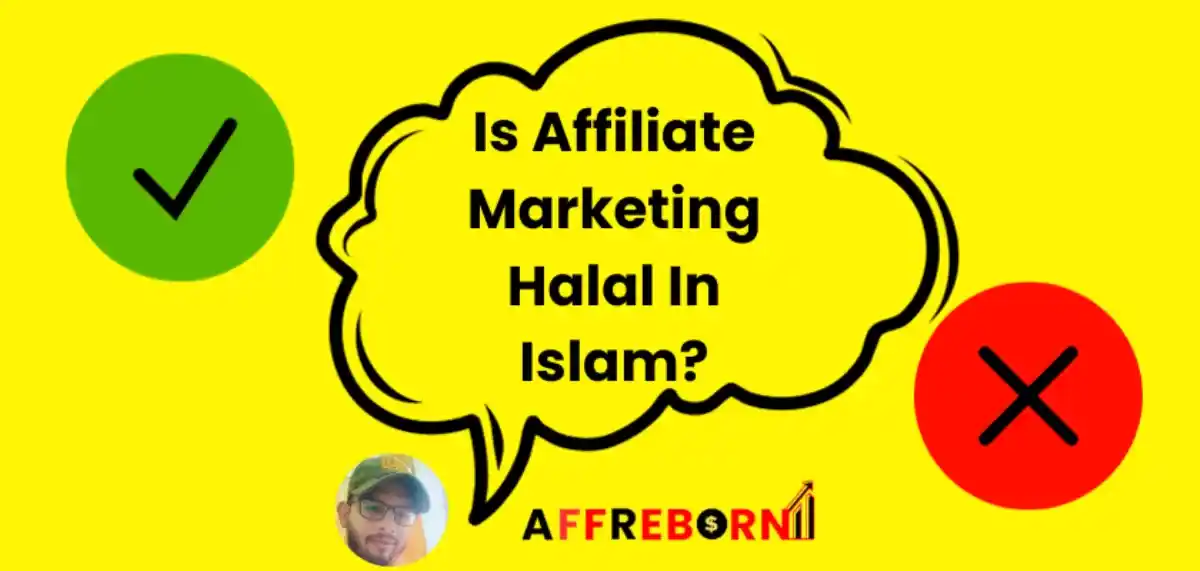Who doesn’t want a passive income?
When talking about passive income affiliate marketing is crazy. There are affiliate experts who make up to $10000 per month with affiliate marketing.
However, as with any business practice, questions about its compatibility with religious principles, such as those in Islam have arisen. So, is affiliate marketing halal in Islam?
Let’s find out the answer to this big question in our exclusive article, and understand the concept of whether affiliate marketing is halal or haram in Islam.
Table of Contents
What is Affiliate Marketing?
Affiliate marketing is a performance-based marketing strategy where a company/brand rewards affiliates for each customer sign-up or visitor referred by the affiliate.
Affiliates promote products or services through unique affiliate links, and they earn a commission for every successful sale or click resulting from their referrals.
Affiliate marketing works on different payment models like CPA, CPS, CPI, CPM, and RevShare. CPA is the most profitable model used by affiliates around the world as the commissions are higher.
What are Halal Principles In Islam?
Halal, an Arabic term meaning “permissible” in Islam, outlines the ethical and lawful guidelines Muslims should follow in their daily lives, including business practices. To determine whether affiliate marketing is Halal, we must consider key principles such as:
1. Avoidance of Riba (Usury or Interest):
One of the fundamental principles of Islam is the prohibition of usury or interest. In affiliate marketing, the commissions earned are not interest-based but rather a predefined percentage of the sale. As long as the products or services being promoted are Halal, the commissions earned through affiliate marketing are generally considered permissible.
2. Promotion of Ethical Products:
Halal business practices involve engaging in ethical transactions and promoting products or services that adhere to Islamic principles. Affiliates must be mindful of the products they promote, ensuring they are not involved in activities that are explicitly forbidden in Islam, such as the sale of alcohol, pork, or gambling.
3. Truthfulness and Transparency
Islam places a strong emphasis on honesty and transparency in all dealings. Affiliates must accurately represent the products or services they are promoting, refraining from deceptive practices that could mislead potential customers. Providing clear and truthful information is crucial to maintaining Halal standards.
4. Avoidance of Gharar (Uncertainty or Ambiguity)
Gharar refers to excessive uncertainty or ambiguity in a transaction, which is discouraged in Islam. Affiliates should engage in transparent agreements with merchants, clearly defining the terms of their partnerships to avoid any ambiguity.
Affiliate Marketing Statistics In 2024
Global Affiliate Marketing Spending:
According to a report by Demandsage and Rewardful, global spending on affiliate marketing is expected to reach $15.7 billion by 2024.
Affiliate Marketing Revenue in the U.S:
According to Statista, the US affiliate marketing spend in 2022 was 8.2 billion U.S. dollars. The latest statistics for 2023 are yet to be declared.
Check out this Google Trend statistics which shows a peak rise in the affiliate marketing search interest in the US, and Worldwide in 2023.
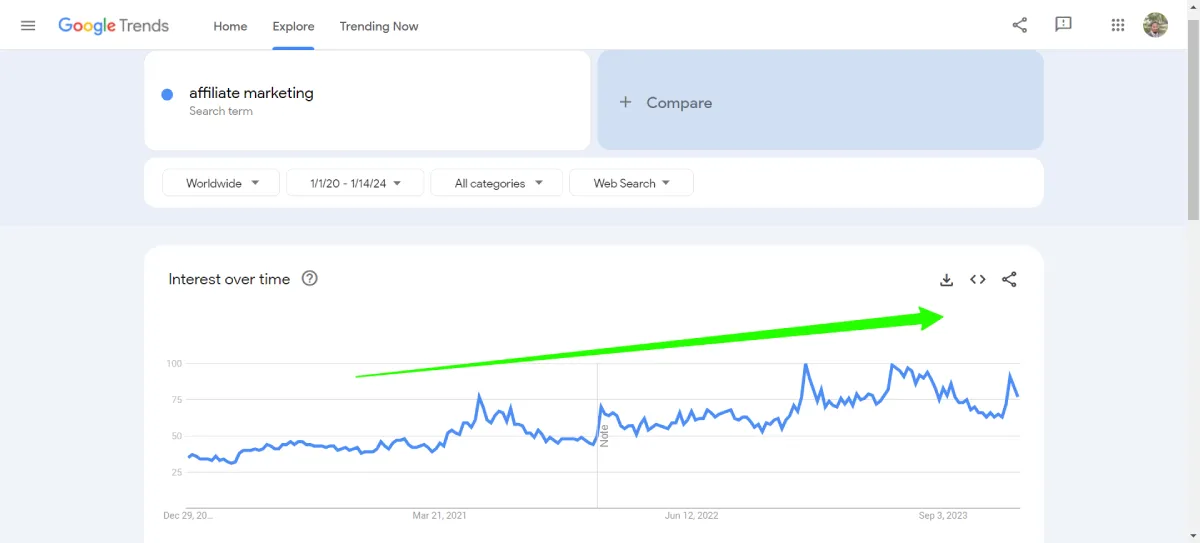
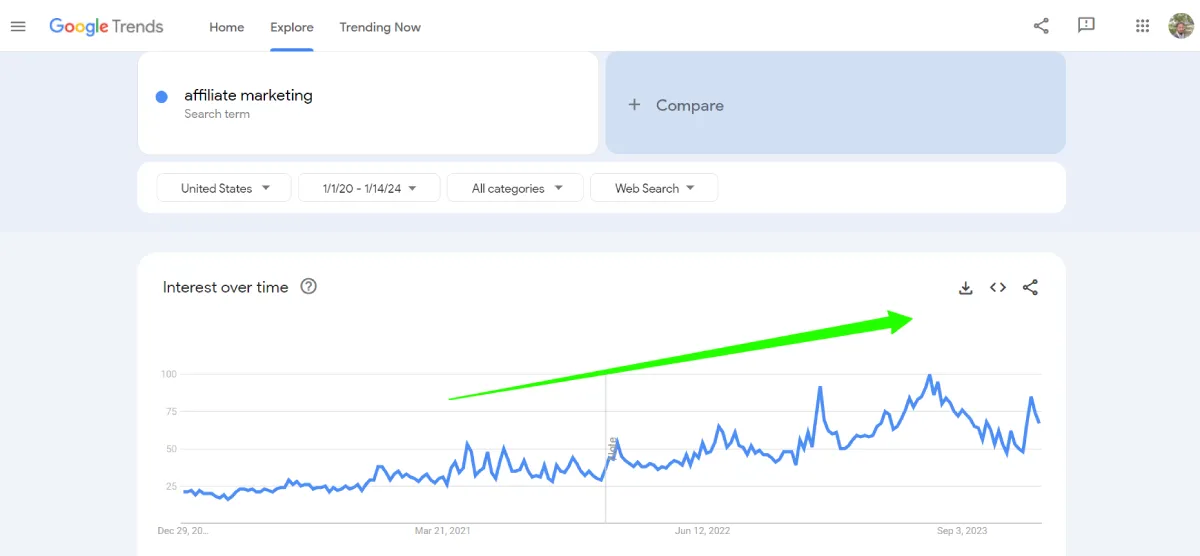
There’s no doubt that affiliate marketing is still becoming popular worldwide with students, and housewives looking for a passive income.
Percentage of Companies with Affiliate Programs
As per Forbes, 83% of affiliate marketers leverage affiliate marketing programs for brand recognition. According to Researchandmarkets, The affiliate marketing global market is expected to grow at a CAGR of 7.7% up to 2030.
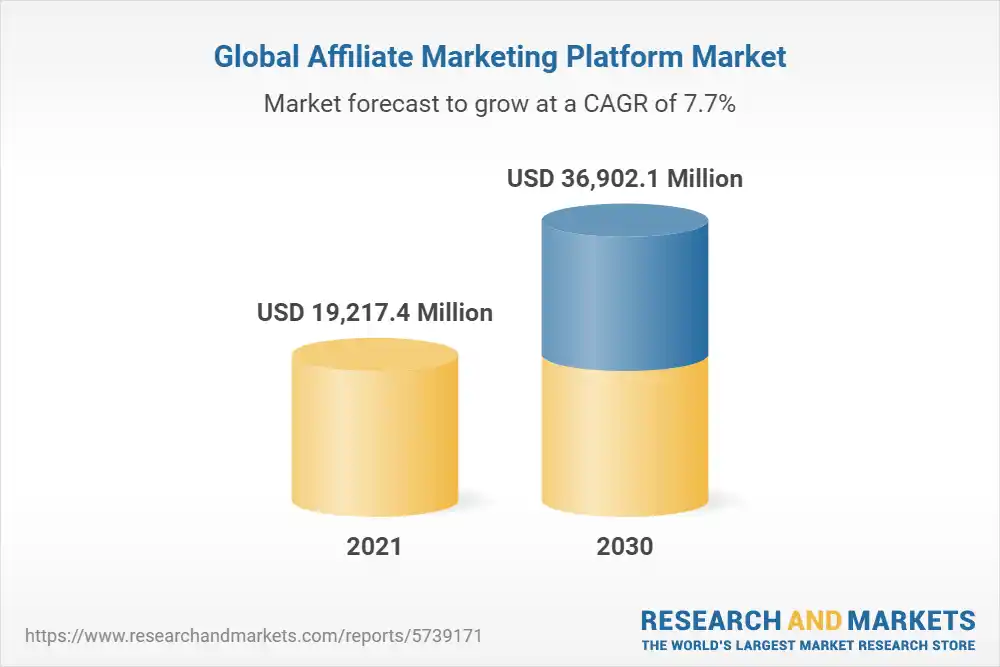
Mobile Share of Affiliate Marketing Transactions
According to reports by Statista, the number of smartphone mobile network subscriptions was around 6.4 billion in 2022. This number is expected to reach 7.7 billion by 2028. Such a huge amount of number certainly affects affiliate marketing transactions.
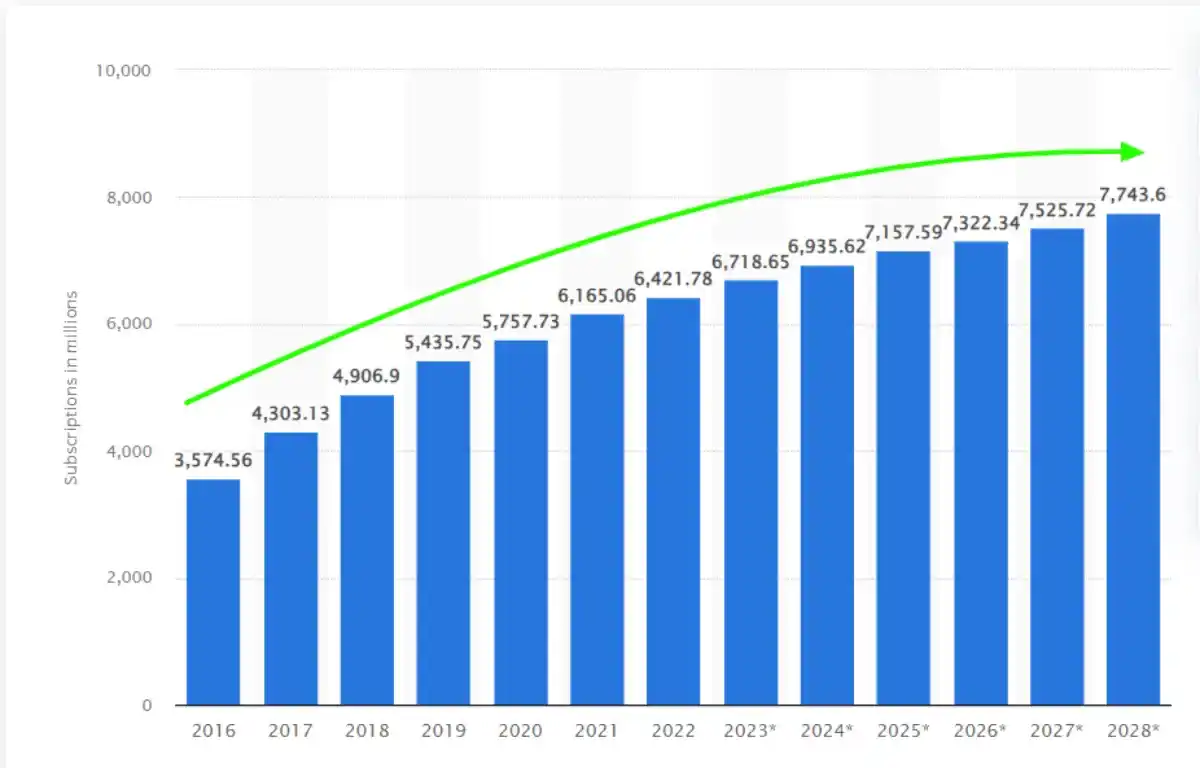
Mobile affiliate marketing can make a lot of money and marketers know how to leverage mobile affiliate programs.
What Are The Profitable Niches in Affiliate Marketing?
- Health and Wellness:
Products related to health, fitness, and wellness have consistently been profitable. This includes supplements, fitness equipment, health coaches, organic products, and other health-related services.
- Finance and Investment:
Affiliate marketers often find success in the finance niche, promoting credit cards, personal loans, investment platforms, and insurance products. Cryptocurrency is a trending topic and a niche crypto blog could make a lot of money with affiliate marketing. Finance is a crunchy topic, so make sure you explore a lot.
Note: There are many fraudulent activities in the Finance niche. Stock market and crypto advisors do a lot of scam and steal hard-earned money. This is prohibited in Islam.
- Technology and Gadgets:
Promoting gadgets, software, and tech accessories can be lucrative with the constant evolution of technology. Web hosting, SaaS tools, WordPress, VPNs, Proxies, and Crypto & Blockchain are lucrative niches.
- Fashion and Beauty:
The fashion and beauty industry is a popular niche for affiliates. This includes promoting clothing, accessories, skincare products, and cosmetics.
- Home & Garden, and Lifestyle:
Home improvement, decor, and lifestyle products are in demand. Affiliates can promote furniture, home gadgets, gardening products like fancy pots, and other related items.
- Travel and Hospitality:
Affiliate marketers can capitalize on the travel industry by promoting flights, hotels, vacation packages, and travel accessories. If you love to travel, start a travel blog, and explore the world.
- Education and E-Learning:
The rise of online education and e-learning platforms has created opportunities for affiliates to promote courses, certifications, and educational materials.
What are the best affiliate programs to join in 2024 and make money online?
- Best Herbal Affiliate Programs
- Best AI Affiliate Programs
- Best SEO Affiliate Programs
- Best Amazon Seller Tools Affiliate Programs
- Best Proxy Affiliate Programs
- Best Managed WordPress Hosting Affiliate Programs
- Best Health and Wellness Affiliate Programs
- Best High-Paying Email Marketing Affiliate Programs
- Best Recurring Affiliate Programs
- Best High-Paying Affiliate Programs
- Best Sports Affiliate Programs
- Best Antivirus Affiliate Programs
- Best AI Writing Software Affiliate Programs
- Best Pay-Per-Click Affiliate Programs
- Best Blogger Affiliate Programs
- Best VPN Affiliate Programs
- Best Car Rental Affiliate Programs
- Best CPA Dating Affiliate Programs
- Best Books Affiliate Programs
- Best Cryptocurrency Affiliate Programs
- Best Web Hosting Affiliate Programs
What are the different affiliate marketing payment models?
| Pay-Per-Sale (PPS) | Advertisers pay affiliates a commission for each sale generated through their referral. |
| Pay-Per-Click (PPC) | Advertisers pay affiliates to generate leads, such as sign-ups or form submissions. |
| Pay-Per-Lead (PPL) | Advertisers pay affiliates for generating leads, such as sign-ups or form submissions. |
| Pay-Per-View (PPV) | Advertisers pay affiliates based on the number of views or impressions of an ad. |
| Cost-Per-Acquisition (CPA) | Advertisers pay affiliates a fee when a referred customer takes a specific action. |
| Cost-Per-Click (CPC) | Advertisers pay affiliates based on the number of clicks their referral generates. |
| Cost-Per-Mille (CPM) | Advertisers pay affiliates for every thousand impressions or views of their ad. |
| Cost-Per-Lead (CPL) | Advertisers pay affiliates for each lead generated through their referral. |
What are the different affiliate marketing payment structures?
| Payment Structure | Description |
|---|---|
| Revenue Share | Affiliates earn a percentage of the revenue generated by the referred customer over the long term. |
| Two-Tier Programs | Affiliates earn from both direct referrals and affiliates recruited by them. |
| Hybrid Models | Combine different payment structures, offering a diversified earning opportunity for affiliates. |
| Performance Bonuses | Affiliates receive additional bonuses or rewards for achieving specific milestones or targets. |
| Lifetime Commissions | Affiliates earn commissions for the lifetime of the customer they referred. |
Pros and Cons of Affiliate Marketing?
| Pros | Cons |
|---|---|
| Passive Income | Ethical Concerns with certain products prohibited in Islam |
| Low Startup Costs | Agreements may change anytime |
| Multiple niches to choose from | Min. payout required when joining affiliate programs |
| Global audience reach | Payment cycle is long with certain affiliate networks |
| Multiple payment models | |
| Flexibility in payment methods |
Conclusion: Is Affiliate Marketing Halal In Islam?
Affiliate marketing can be considered Halal if certain conditions are met. Affiliates should focus on promoting products/services that are compatible with Islamic principles, ensuring the avoidance of interest, and maintaining honesty and transparency in their marketing efforts.
It is essential for individuals engaged in affiliate marketing to be cautious of the Halal status of the products they promote and the overall ethical nature of their business practices.
FAQs
Is digital marketing halal?
Digital marketing in Islam is permissible if it adheres to ethical principles. Content promoting Halal products, truthfulness, transparency, and avoiding forbidden content is crucial.
Is affiliate marketing haram?
Affiliate marketing is not inherently haram (forbidden) in Islam. Its permissibility depends on ethical considerations, such as promoting Halal products, avoiding deceptive practices, and adhering to Islamic principles in business transactions.
Is Amazon affiliate marketing halal?
Amazon affiliate marketing can be halal if the products promoted comply with Islamic principles, transactions are transparent, and there’s no involvement in forbidden items. You can join the Amazon Associates program and promote ethical and Halal products in various categories. Affiliates make up to $7K per month with the Amazon affiliate program.
Is Clickbank halal?
ClickBank is a leading affiliate marketplace with high-converting affiliate offers. The platform has over 100K + active affiliates and has now paid over $6.2 B + in commissions. As an affiliate, you get access to top offers, real-time reporting, and on-time secure payments. It can be halal if the products promoted comply with Islamic principles, transactions are transparent, and there’s no involvement in forbidden items.
Is Multi-level marketing halal?
If MLM adheres to the Shariah laws and does not involve products prohibited in Islam such as Gambling, Alcohol, then it is considered to be halal.
